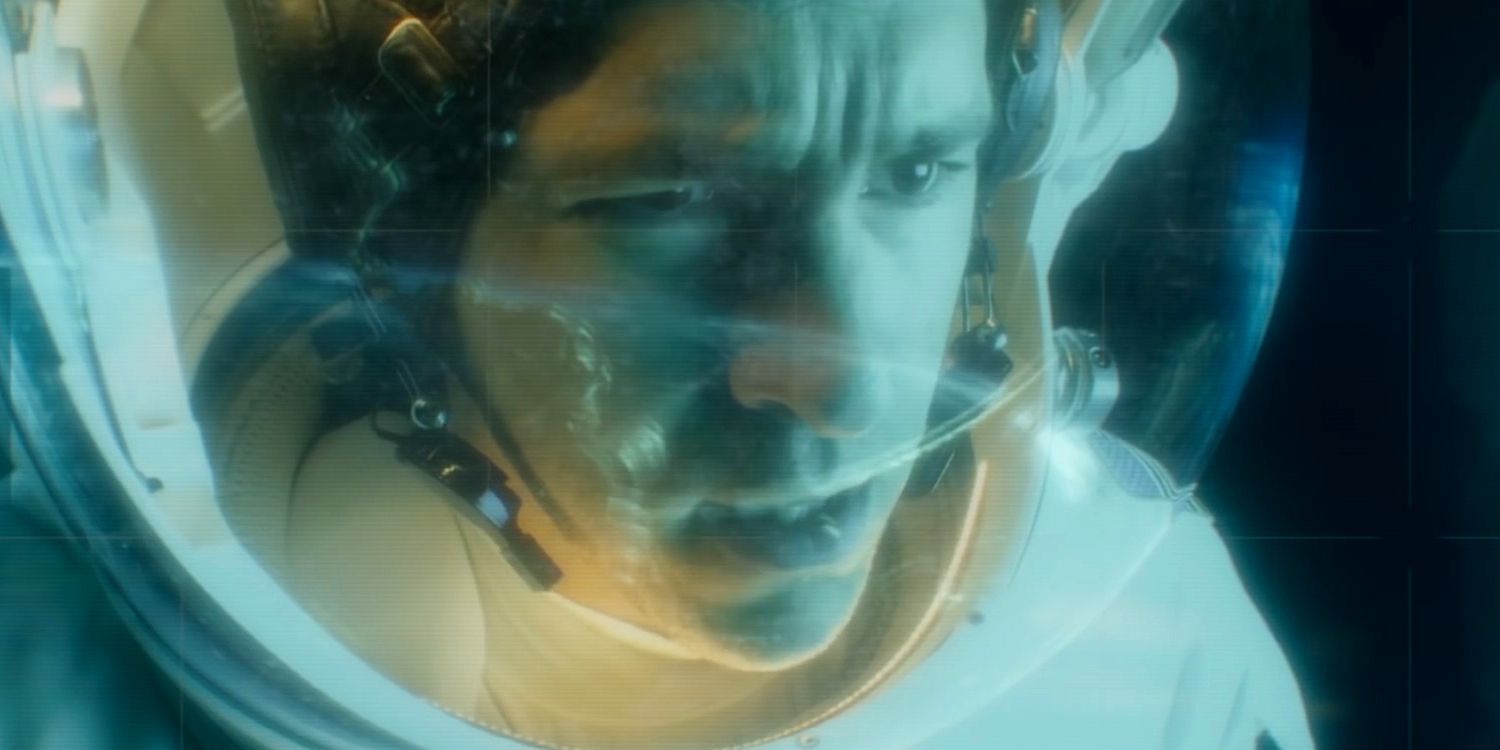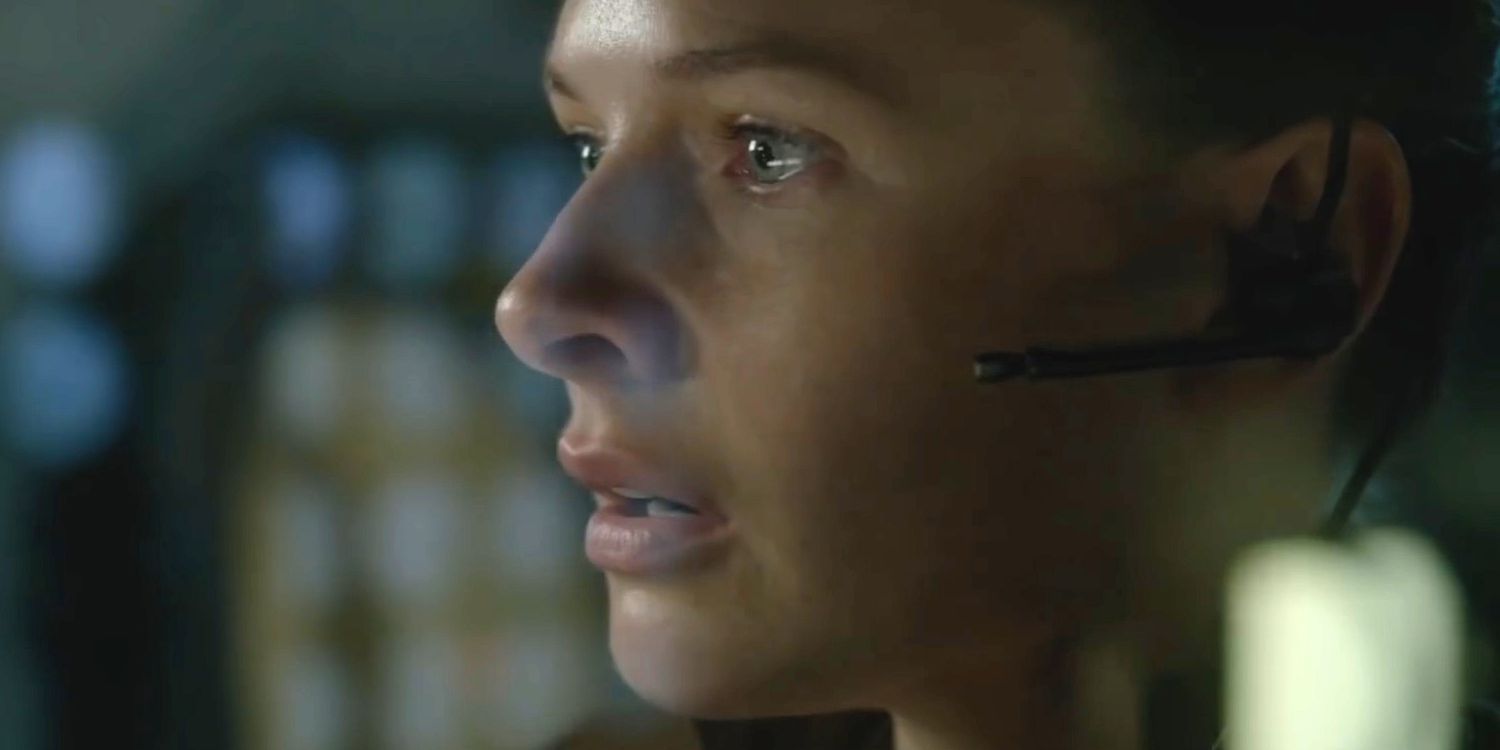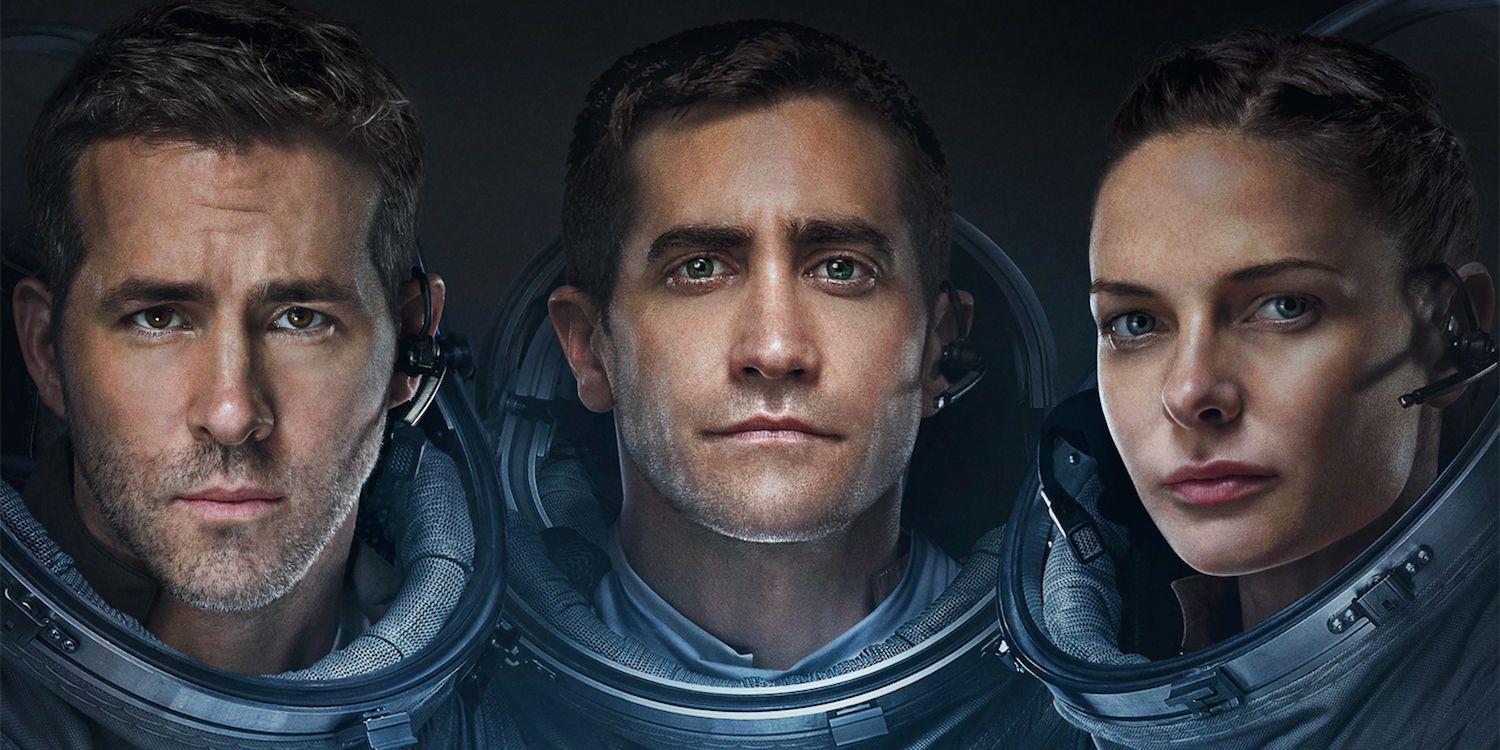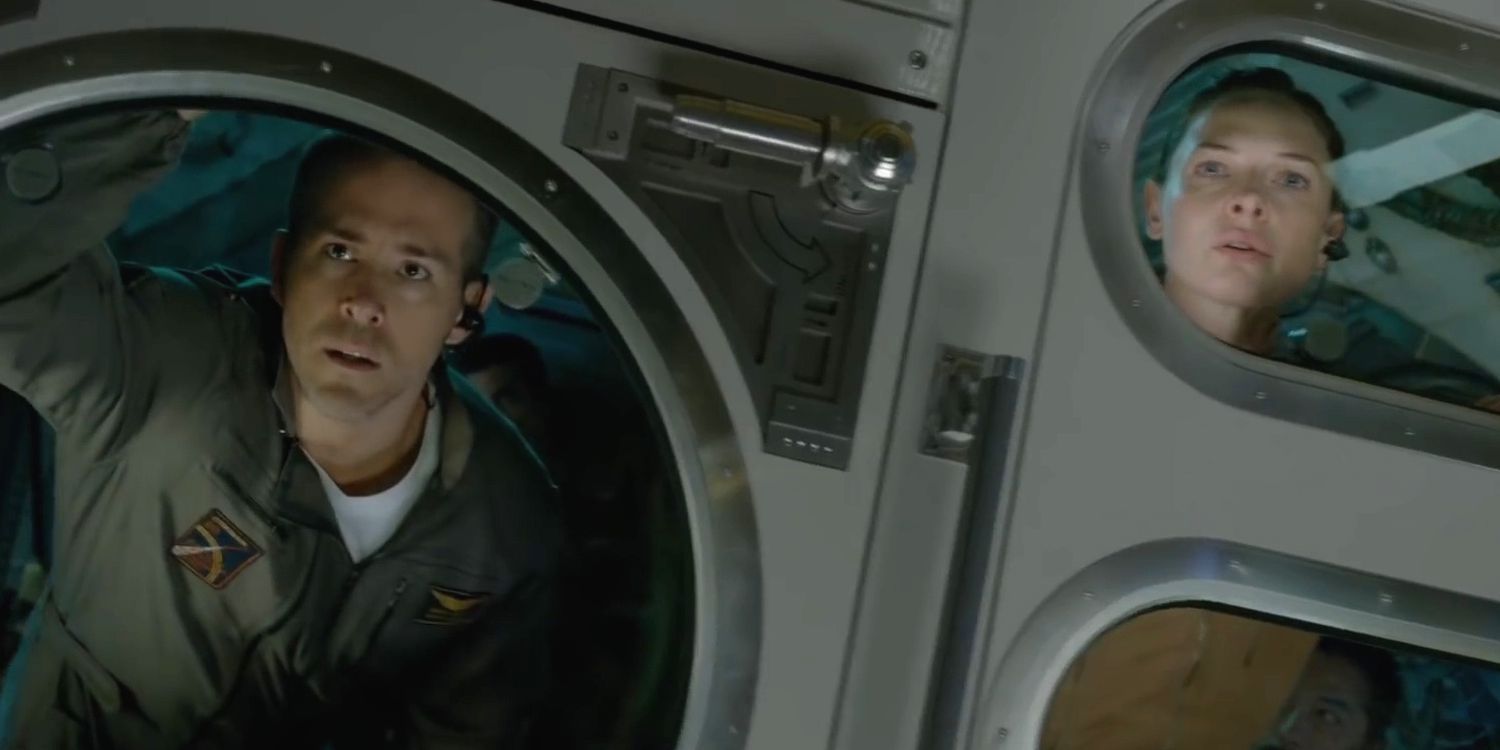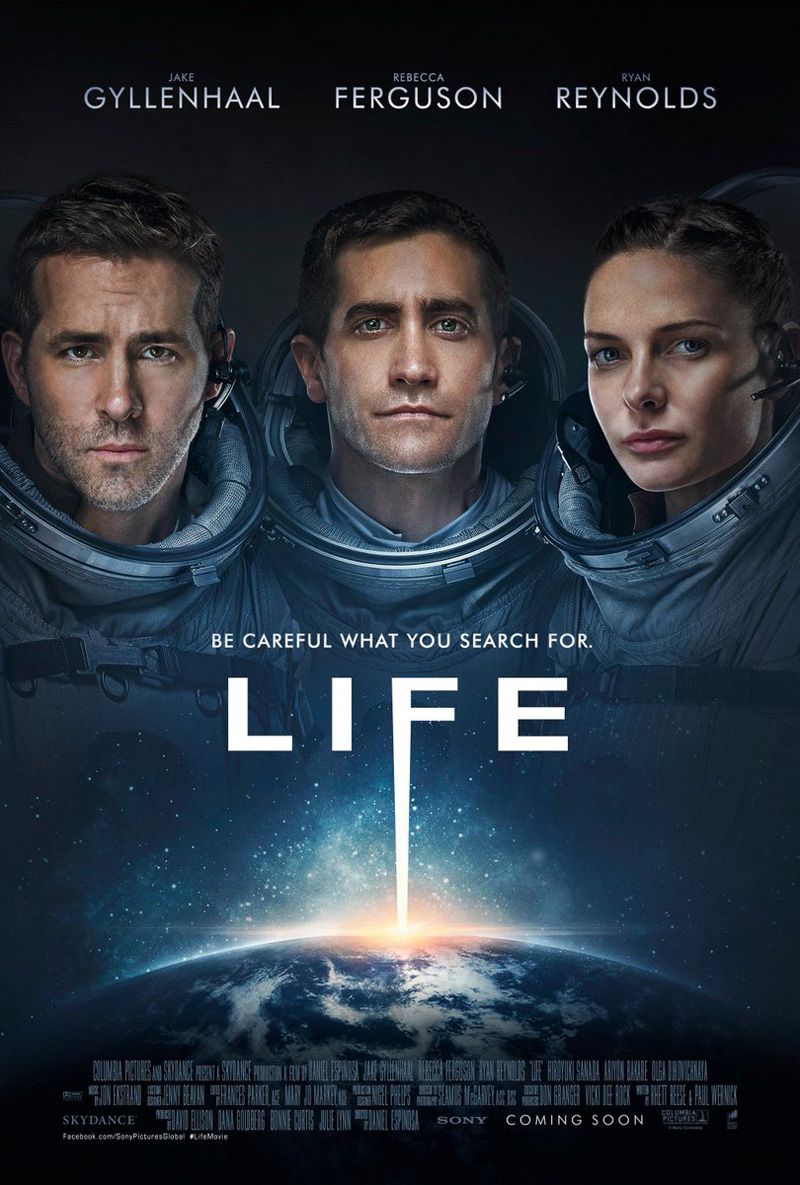Daniel Espinosa is a director to look out for; having tackled films in the action, drama, and – now – science fiction genres, he has gained attention for his fluidity and his grounded directing style. With his new science fiction film, Life, we are taken on an intense ride with many twists and turns, keeping us on the edge of our seat until its climatic, twist ending.
Screen Rant sat down with Espinosa on press day, where we discussed his directing influences when he made Life, how close he thinks we are to finding alien life, and what genre he wants to take on next.
First of all, I love this film.
Daniel Espinosa: Cool. Thank you. Thank you, man. I appreciate it.
I want to say it was fun, but it was terrifying.
Daniel Espinosa: Cool. Great.
I did not think that Calvin was going to haunt my dreams.
Daniel Espinosa: Really?
Yeah. The thing with this is that I always thought that if aliens were to be discovered it would be exactly like this. So, you almost made my nightmares come to life.
Daniel Espinosa: Oh man. Thank you, man. Thank you.
Let me ask you this. So what were some of your directing influences when you made Life?
Daniel Espinosa: I went through all of them. You can be influenced by many. At the beginning, it was Solaris by Tarkovsky. Then you go to 2001 by Kubrick. You go through Alien. And then the one people often forget is The Thing by Carpenter. And then you have to go through the modern, you know, Gravity, Nolan’s Interstellar. You know all of them have small pieces. I think with Interstellar it is the Zero G aspect. It is the best Zero G that has ever been done because if you compare that to, for example, if you go to other movies like Martian, the Zero G is horrible. You know they always look like swans.
I didn’t even know. It is interesting that we are talking about this because, when I saw the film, I thought man everything looks so natural. Like you weren’t shooting it in zero gravity. You know what I mean. It looks so fluid.
Daniel Espinosa: You know and like personal. Because when you look at other Zero G movies like The Martian, you know, they do this and then you have this pause where nothing happens. Nobody talks to each other. Nobody does anything and that’s now how we people are. When you are sitting here, you are behaving. You don’t wait for a moment to move. You talk at the same time.
Yeah. Absolutely. You know, it’s so funny caused you mentioned Kubrick’s 2001. I found it a mixture between that and Alien. You know what else I thought to? I am a huge fan of Twilight Zone. So it almost seemed like a Twilight Zone episode.
Daniel Espinosa: Yes. Exactly. Cool. Thank you. Thank you. Because that was like the ending. It was Twilight Zone.
Twilight Zone! Yeah. That twist ending I was like, “Oh man!” And it makes me want to now see what happens.
Daniel Espinosa: My whole idea, what I loved about this movie, was when I got this script was two things. One thing is that it has those two terms, which I thought was Twilight Zone and also draws back to an old American tradition, which is ‘50s film noir, which is where Twilight Zone comes from. You know, with those big terms and that for me is what differentiated it from Alien. And the second thing was the realism. That also was something that it’s not about 200 years into the future like dystopian neo-punk era. It’s tomorrow.
It’s tomorrow. Exactly. And that’s exactly how it felt. It felt like it was happening now. Let me ask you this. How close do you think we are actually finding alien life?
Daniel Espinosa: Oh, really close. Really close. Because, the thing is that a month ago they found some pieces of stones that they think come from pieces of Mars that has been detached. And they found something that seems to be almost like a bacteria. So the possibility that there has been some kind of life forms on Mars is close. And also with these new planets. But it’s also like that eternal question. If Space is eternity, it means that it contains eternal possibilities. If it contains eternal possibilities, the idea that not just life exists, but also intelligent life forms that has a far more sophisticated technology than us exists, it is almost mathematically probable. But then why haven’t they contacted us?
Now after making this film, does it terrify you?
Daniel Espinosa: Yeah. It does. Not because not of what they’d do to us, but how we would react towards them.
Right. It’s completely accurate. Now let me ask you. I was talking to Rebecca. Because this film is very intense, very very intense. Almost from the beginning to the end, I was on the edge of my seat wondering what was going to happen. Now she said that on set though it was a lot different. The tone of it was a lot different. Can you tell me about that?
Daniel Espinosa: In our tradition, in Sweden, we believe in more of a flat bay system where like a PA can walk up to me and tell me an idea. I don’t like having hierarchical structures. So, everybody knows that I’m the boss but, from that, I don’t like people to walk on eggshells. I like people to be friendly and to feel loved. Like a Swedish director we have, he made a movie called Persona, which is like the biggest kind of peek into anxiety that you’ll ever see. But when they were doing that movie, they were laughing, they were f***ing, and they were enjoying themselves and I think that kind of fits into creativity stronger. If people are scared, they are afraid to come up with ideas. But if people feel comfortable, you know the PA might be the next f***ing Alfonso Cuarón, man! And if he comes in and they respect me, so they won’t just throw ideas. But, if I’m outside smoking and a young guy come up to me or young girl and they say to me, “Can I say something? You know what bothers me about this scene?” And you go like, “No!” And they tell you what bothers them and sometimes that’s a great epiphany to have to change.
You’re very approachable.
Daniel Espinosa: Yeah. I have a better vibe with people.
Now, obviously Ryan is in the film. How much, if any at all, is this film improvised?
Daniel Espinosa: I mean, a lot. A lot.
Really?
Daniel Espinosa: Cause a lot of those moments, Paul and Rhett Rheese gave us a great structure and a lot of like great lines and great movement of the scene where we know where to turn and how it happens. And then we are also bound by astronaut lingo. They are supposed to speak like astronauts. But, at the same time, there are a lot of moments, the more kind of emotional moments, the character moments that are from the actors themselves. You know from the kind of research they did and we did together when we constructed the characters.
So there is a lot of the character that is not necessarily on the page, but they developed themselves. Interesting.
Daniel Espinosa: Exactly. When I worked with Denzel Washington, what impresses me with him is the amount of research that he did. We were doing Safe House, which is like a stupid action movie, right?
I like Safe House a lot.
Daniel Espinosa: No, but me too. But it is like, when you look at it from a stereotypical point-of-view, you can say that when Denzel got the movie I thought he was going to do his best, but not put in that much work because it was like a slam dunk for him, right? No, man. He wrote like three books like this on the character’s background. And two books he would keep reading over and over and over again.
Really?
Daniel Espinosa: And I asked him, “I’m really happy that you’re doing this, but why, man?” And he said, “That’s my method, man.” And I asked, “How?” And he goes, “Glory.” You know that speech he has when he got whipped?
Mm hmm
Daniel Espinosa: That’s improvised.
Really?
Daniel Espinosa: Yeah, man. And that won him the Academy Award, you know? So, I always tell that story to my actors because no matter how small your part is, you know, if you look at Denzel’s part in Glory and you remove that whole speech, it’s halved. And the kind of criticism it gives of slavery is not as hard, right? And that comes from a young actor, who at the time was in his early ‘30s, who has a smaller part in a movie that’s not that big, with no one really famous in it. And at that time doing a movie with a lot of people with color was not a guaranteed success. And they are putting in that work? If you do that, that’s the way, man. And then my actors picked it up and then when we shoot, if a person wants to go, then you should go, man.
You’ve created your directing process based off of people you’ve worked with. It’s not by the book at all.
Daniel Espinosa: But also allowing people to be the best that they are. I know that I have a touch and that I am not afraid of it. I have the authority because of I have the job. Many directors forget that they have the job, man. The PA ain’t going to take the job away from you. If he criticizes you, that doesn’t make you any less of a director. It’s just giving his f***ing voice heard. Don’t be a dick. Like most are dicks. You know, they scream at people. I don’t believe in that. I come from a, I’m here now, but I come from a hungry background. I’m a refugee, so for me I’m just grateful to be here. If somebody wants to fight, I’ll fight. I’m a strong f***er. But if you want to talk, let’s talk.
You’ve gone to work with a list of unbelievable actors. And Denzel you’ve just mentioned, but you’ve got Ryan Reynolds, Jake Gyllenhaal, Tom Hardy. What’s your secret at attracting top quality talent like that?
Daniel Espinosa: I think it’s honesty, man. What they are looking for in a director, they are looking for an honest opinion. Because they are very lonely out there. I think if you have a perspective, which means they have something to bounce up against, a direction where to go, and then honesty, then they know that when they’ve done a take and look over to you that you’ll look over with compassion, but honesty and tell them, “Dude, we got to do that again.” You know, why? “I don’t think you’re finding this and this.” And then they will go for it. I think a lot of directors nowadays come from the commercial world, which is about seduction, which has nothing to do with personal directing. If you are trying to seduce an actor he might like it but I can guarantee you that he’ll hate it when you start shooting. They are looking for somebody who is like a compadre, their brother, or sister, who can tell them the honest truth and help them to become a better artist than they are right then.
That is a very interesting take on it. You’ve had the capacity to switch between film genres. You’ve done drama, action, and sci-fi. What genre would you like to try next?
Daniel Espinosa: I don’t know, man. I have ADD, so I just like new things. I get bored. If I feel that I’m reading a movie or a script that I’ve done before, it bores me. It’s like if you see a woman or a man that you feel attracted to, but you have this feeling that you’ve had a relationship with that person before, you’d rather find some new spaces. Or you find suddenly you look over at a woman or a man and you recognize something and go, “There. That’s what I should fall in love with.” But you know, it hasn’t happened to me yet. Like gangster movies, I’ve done two of them. But that’s also with my past. I went to jail for two years when I was 16. So, for me, that kind of resonates with me.
It spoke to you.
Daniel Espinosa: Yeah. I would like to do something socio-realistic in America.
Really?
Daniel Espinosa: Yeah. I think that would be interesting. About fishermen. About the working class, you know? Your disappearing working class. I saw Manchester by the Sea the other day and it had a huge impression on me. Who knows? I might do a superhero movie.
Well, I mean, everybody is doing it at this point. So, you have experience with large scale films and small scale films. What property have you always wanted to get your hands on?
Daniel Espinosa: For me, one area that I don’t think I can do because I don’t think I’m right because I am not from there, there is something with the LA riots, man.
Really?
Daniel Espinosa: There is something with the LA riots that hasn’t been told. That hasn’t been seen, you know? I have a lot of friends…
I grew up in that area, by the way. In that era, I think it was ’94, literally where I was growing up was blocked. Well, it was a mile away from everything. It’s interesting that you say that because I just watched the documentary, the OJ Simpson one, and it’s interesting. The LA Riots would be…you’re right.
Daniel Espinosa: Yeah. And it’s like people aren’t doing that. So, I don’t know if me as a foreigner, as a Latino, I don’t know if it’s cultural appropriation for me to go in there and doing something. So, I got to feel right about it, but that’s something that has always fascinated me.
I’d love to see that.

